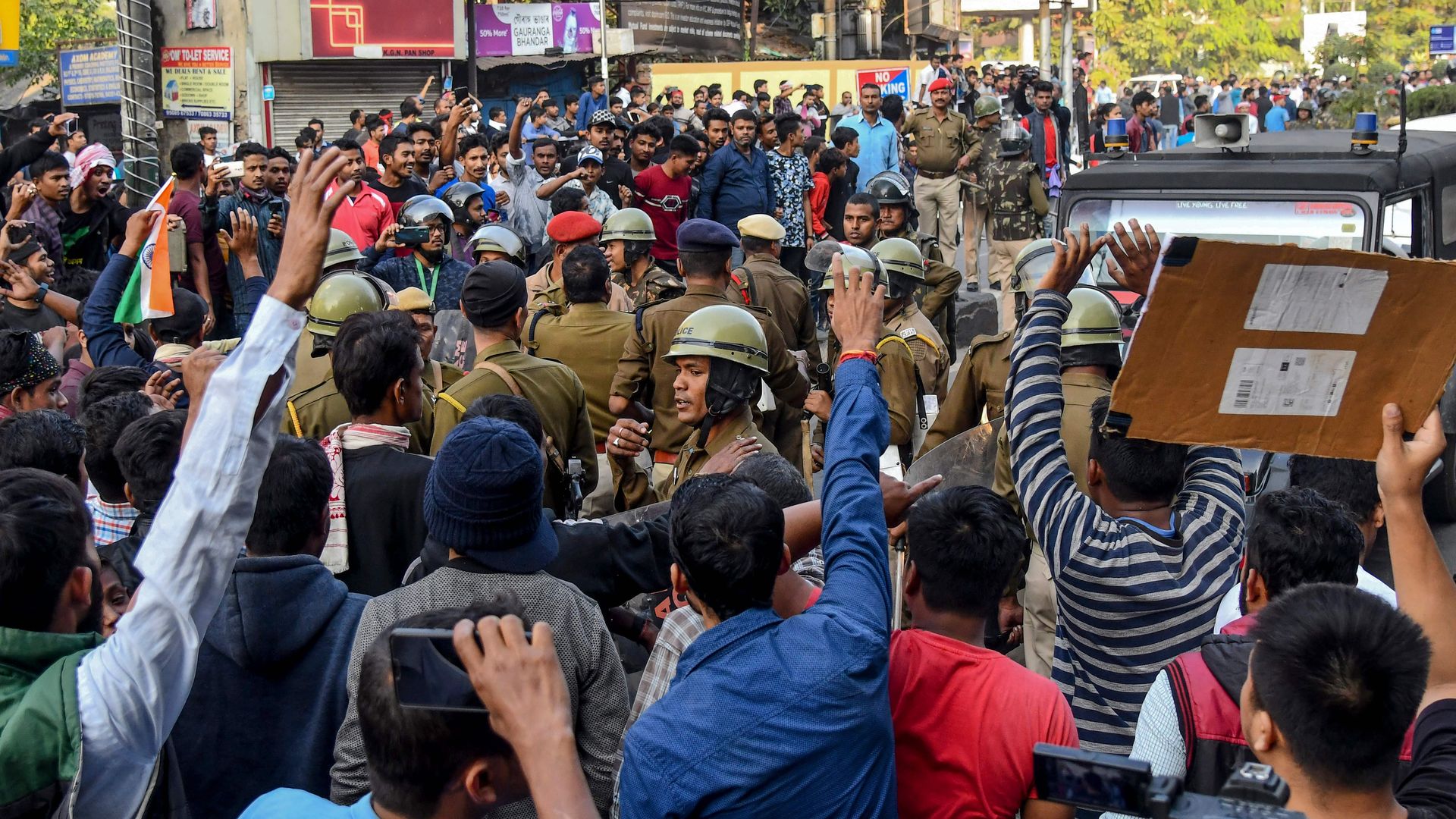
India's parliament passed a bill this week that would link citizenship to religion for the first time in the country's history.
Why it matters: This is the latest in a series of steps by Prime Minister Narendra Modi that could "fuel the sentiment that Muslims are a kind of permanent underclass," says Milan Vaishnav of the Carnegie Endowment. "The damage that could do to the social fabric is potentially enormous."
- The ruling Bharatiya Janata Party (BJP) says the bill, which will become law once signed by India's president but already faces a court challenge, is designed to protect religious minorities.
- It would make Hindus, Buddhists, Christians, Jains, Parsis and Sikhs who arrived from Bangladesh, Pakistan and Afghanistan before 2015 eligible for citizenship after six years.
- Muslims were excluded, officially because they are not religious minorities in those countries.
Between the lines: The bill is linked to a deeply controversial effort to register all citizens in the northeastern state of Assam. The government has vowed to nationalize the citizenship register.
- A lack of paperwork and haphazard legal proceedings have plunged many of those attempting to prove citizenship into a Kafkaesque nightmare.
- The register was targeted at Muslims who came from Bangladesh, but some of the 1.9 million people left in limbo are actually Hindu.
- While hundreds of thousands of Muslims may become stateless, Hindus and others could be fast-tracked for citizenship under the new law.
Zoom out: Modi’s critics say he’s undermining the secular principles on which the Indian state was founded 70 years ago.
- But his supporters believe that framework always masked what India truly was: a great Hindu civilization. Four-in-five Indians are Hindu, while 15% are Muslim.
- “You can easily mobilize on that resentment: ‘Wait a minute, we’re a majority in this country and we’ve been living like we’re afraid of wearing our identity on our sleeve. We don’t have to do that anymore,'" Vaishnav says.
The big picture: “The BJP has for a long time been powered by three principle objectives,” Vaishnav says. They include modernizing the economy, making India a leading global power, and redefining India’s social contract in a more “pro-Hindu” fashion, he says.
- Modi prioritized the first two in his first term. Having been returned to power in May with a thumping majority despite a mixed economic record, Modi has made a sharp pivot to social issues.
- The most dramatic step up to now was the revocation of the special constitutional status for India’s only Muslim-majority state, Jammu and Kashmir, which was placed under a prolonged lockdown.
The bottom line: “The economy is in a tailspin,” Vaishnav says. "Instead of addressing that with the urgency it deserves, they’re lighting all of these other fires that are going to be hugely distracting and detrimental to the larger objective of 'making India great again.'"
The latest: Violent mobs set buildings and rail stations alight and clashed with police on Thursday in Assam, leaving at least two dead. Authorities cut internet and mobile service and imposed a curfew. The demonstrators worry the new law will flood the state with immigrants and change the local culture.
Go deeper:







